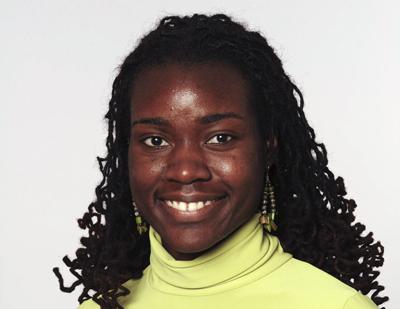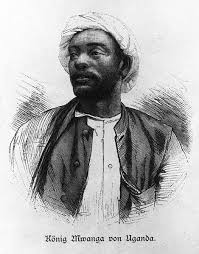Why Liberia’s Proposed Dual Citizenship Legislation Should Be Based on Evidence, Not Sentiments – By Robtel Neajai Pailey

 Cecil Frank is an unassuming man, but he’s got some firebrand politics. His is a story that typifies the peculiar migratory history of Liberia””a country “˜founded’ in 1847 by repatriated blacks from the United States””but his migration patterns and life choices are atypical.
Cecil Frank is an unassuming man, but he’s got some firebrand politics. His is a story that typifies the peculiar migratory history of Liberia””a country “˜founded’ in 1847 by repatriated blacks from the United States””but his migration patterns and life choices are atypical.
While many Liberians moved to other parts of the West African sub-region, the United States, or Western Europe before, during, and after the country’s 14-year civil war, Frank studied in the Soviet Union in the late 1980s, where he was influenced by nationalist politics. While a number of Liberians took on other citizenships during their time abroad, Frank refused to naturalize. Now in the United States pursuing a Ph.D. in public policy, Frank appears to be an outlier swimming against the tide in a transnational debate about dual citizenship that has caused a chasm between those in favor and those opposed.
Liberia’s constitution is one of the surviving few that makes a natural born citizen revoke his/her citizenship upon naturalization in another country (Ironically, foreign nationals from the West African sub-region can naturalize as Liberians and maintain their origin country citizenship, but the same is not permitted for natural born Liberians). In 2008, four senators in the country’s Legislature introduced a proposed amendment to the Aliens and Nationality Law to enable Liberians by birth and their foreign-born children to hold two citizenships””Liberian and any other. The proposed bill does not include important provisions about the statutory rights and responsibilities of would-be dual citizens, such as voting in national elections, holding high political office, paying taxes, or serving in the military. Yet, it was recently resurrected by lobbying groups in the U.S. and Europe despite an on-going constitutional review process.
Frank believes very strongly that Liberia must proceed with caution. I agree with him, although for different reasons. According to Frank, there is a dearth of patriotic fervor in Liberia. He says that until Liberians at home and abroad have a vested interest in transforming the country for the better, dual citizenship will only complicate things. As a researcher who has intently studied the prospects of dual citizenship for Liberia, I believe that much of the debate on both sides of the spectrum has been steeped in too much sentiment, and not enough evidence. Given Liberia’s complicated relationship with its diasporas””who have served as both agents of insurgency/political instability and humanitarian/development relief alike””the country must toe a delicate line between lifting citizenship restrictions on those who left and protecting the rights and privileges of those who remained.
Sentiments abound about the inalienable rights and privileges of natural born Liberians, the security of the state, the developmental impact of remittances, and the political future of the country. Most people have not seen the draft bill, but they have formed very strong opinions about it. Those in favor of dual citizenship argue that Liberians by birth should not be punished for fleeing the civil war and seeking greener pastures abroad. Those opposed to dual citizenship argue that Liberians who naturalized in other countries are traitors who only want dual citizenship now because Liberia is stable and ripe for exploitation. While both arguments have some measure of truth, dual citizenship is too important a policy issue for Liberia to rush the process.
For starters, Liberia does not have reliable statistics on its diasporas, and its embassies abroad do not keep comprehensive databases. Current population figures for Liberians abroad are fuzzy, at best. A case in point, the distribution of Liberians in the United States, which hosts the largest numbers of Liberians outside of West Africa, is the least verifiable, with estimates ranging from under 10,000 to over 450,000. Without an accurate sample size, it is difficult to capture how many Liberians actually naturalized in other countries, or have children who were born outside of Liberia. Therefore, it is
virtually impossible to verify how many people the proposed bill would immediately affect.
Statistics present one challenge in resolving this policy conundrum, but there are others. It has been argued that Liberians who returned to the country after the war have taken all the best jobs and therefore enacting dual citizenship would exacerbate an increasingly widening gap between rich and poor. Although the most visible cases of this have been returnees appointed by the president, no empirical studies have been conducted to measure the number and impact of Liberian professionals from abroad currently holding high managerial posts in the public, private and NGO sectors. It is also rumored that policy makers in the Executive and Legislative branches of the Liberian government secretly hold de facto dual citizenship because they carry two passports. Some argue that the integrity of Liberia’s laws is being contravened by the very people who should uphold them. It is difficult to gather concrete evidence of this because many individuals refuse to disclose their citizenship status fearing backlash. Furthermore, Liberia’s borders are porous, and the country’s ports of entry don’t have the capacity to collect comprehensive immigration statistics or even screen people thoroughly. So for now, the rumors continue to be heresay.
There is also a lot of heresay about remittances. Some have claimed that Liberians abroad have made an impact on development through remittances, yet both remittance figures and development impacts can be contested. The World Bank estimates that US$360 million was remitted to Liberia in 2011 alone, but these figures only capture remittances sent through formal channels such as banks, Western Union and Money Gram. Furthermore, the World Bank remittance figures for Liberia capture international transfers in their entirety and are not disaggregated to isolate Liberian diaspora transfers. The challenge herein is proving whether or not diaspora remittances have had significant national development outcomes beyond household consumption, such as the construction of essential infrastructure, the provision of basic social services, or the establishment of viable businesses. While some invoke remittances, others cry foul about the presumed high rate of capital flight. They claim that money leaving Liberia to support transnational lives””mortgages, school fees, student loans, and taxes paid to foreign governments””could very well be equivalent to remittances sent to Liberia thereby canceling out remittances altogether. But again, we have not been able to gather concrete evidence of this, not from the Central Bank of Liberia nor from money transfer agencies.
In addition to invoking remittances, some argue that dual citizenship has improved the development outcomes of countries such as Ghana so Liberia should follow suit. But comparing Ghana to Liberia is like comparing apples and oranges because the two countries have different histories and development trajectories. Furthermore, there is no evidence of a positive correlation between the passage of Ghana’s dual citizenship legislation in 2002 and increased economic development in the country. One third of African countries have passed dual citizenship legislation in the past two decades, but their development outcomes cannot necessarily be attributed to dual citizenship. For example, I recently conducted field research in post-conflict Sierra Leone, where dual citizenship became law in 2006. Dual citizenship has been touted as the panacea to the country’s development, but the only concrete evidence I found of this phenomenon in practice was the increased numbers of Parliamentarians from abroad. I could not find evidence of the total number of Sierra Leonean dual citizens who had returned to live and work in the last six years. I could not find evidence of whether or not Sierra Leonean dual citizens had paid taxes on property owned, and if so how much. I could not find evidence of the total number of Sierra Leonean dual citizens who had established businesses in the country, or had successfully served in the private and public sectors. This is the kind of empirical evidence Liberia needs to inform its proposed dual citizenship legislation, given its similarities historically and contextually with Sierra Leone.
In the midst of rapid internationalization and globalization, citizenship laws are the only means by which states maintain their relevance nowadays. The Liberian nation-state has been contested historically because of its inability to respond to the needs of its citizens, which fueled two decades of instability. As a result, the country must pursue policy-making on dual citizenship that is driven not by conjecture, rumors, or sentiments, but by evidence.
Robtel Neajai Pailey is a Liberian Ph.D. candidate at the University of London’s School of Oriental and African Studies (SOAS). Her research focuses on the current and historical factors that have led to the introduction (and postponement) of proposed dual citizenship legislation in Liberia.




